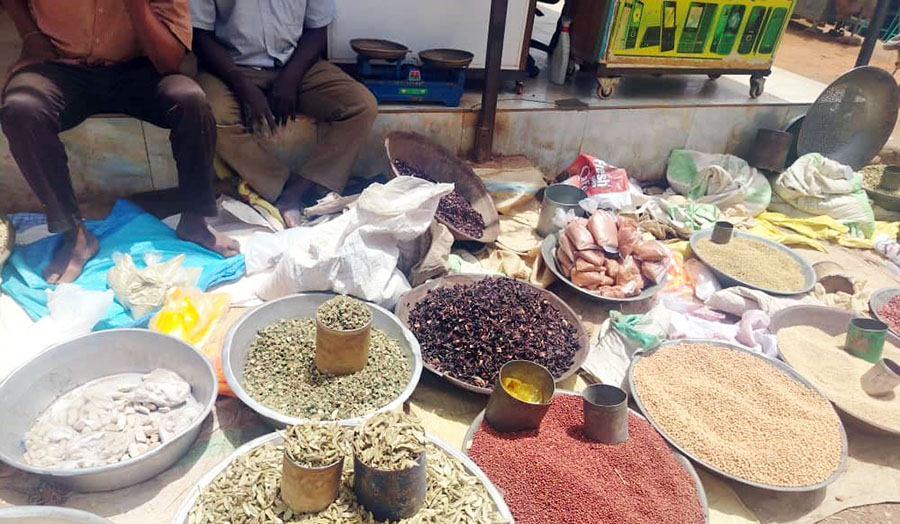
Burned for the second time... Market 6 rises from the ashes
Moatinoon - Ali Al-Tahir
The National Unity Market 6 in Haj Youssef, east of the Sudanese capital, Khartoum, represented a significant and reputable shopping hub. However, when the war broke out, the Rapid Support Forces took control of it, tarnishing its reputation and tarnishing its image. Most shops opened their doors to the sale of stolen goods, looted merchandise, drug trafficking, and currency trading. It became similar to the Daglo markets, which legalize theft under the guise of "shafshafa," far removed from the controls of legitimate sales. However, when the fierce fighting intensified in the area, the market was looted and burned by hands that remain unknown to this day.
The entire market was burned to the ground, and the traders who controlled it became victims. Some retired from the profession, while others left and abandoned everything. However, the majority dealt with the situation realistically and returned to work from scratch.
Mohamed El-Hafez is a hard-working and ambitious young man who always pays close attention to his appearance and the appearance of his shops, which are packed with electrical and household appliances. At the top of his shops, atop a building consisting of two stores, he displays a sign reading "Al-Saeedi," a trademark recognizable to his customers, who regularly visit his store on the western side of the market entrance.
These are the only places untouched by the flames. Miraculously, they escaped the fire, but they were not spared by the thieves who plundered their interior before leaving the building empty and open, a witness to the crimes and criminals who shattered its owners will and caused him significant financial losses estimated at billions of pounds. He left the market destitute and frustrated, sitting inside his home, besieged by penury and debt.
About six months ago, the National Unity Market in Haj Youssef was hit by a massive, devastating fire. The flames raged for five days, consuming shops and everything inside the market, which was reduced to a pile of ash. A dark, blackish hue was evident on the walls of the buildings, cracked by the intense heat that melted iron and consumed merchandise and goods.
The raging fire did not differentiate between wholesale and retail traders, nor did it spare boutiques and spice outlets. It burned everything, even capital. But today, the market has risen from the ashes, standing on its feet, regaining its activity. Life has revived its outskirts, and its heart has begun to beat with the movement of buying and selling. The eastern side of the market has awakened, the vegetable market has opened its doors, and boutiques have renovated their ready-to-wear storefronts using innovative display methods. The glass facades continue to attract customers, while the fish, chicken, and red meat markets at the bottom of the market have flourished. Many crafts and professions have regained their activity and vitality.
The market also witnessed a restoration and maintenance effort for the burned and destroyed shops, which were renovated and restored to suit the situation and facilitate the display of merchandise. Youssef, who owns a boutique in the center of the market that was completely burned, said, "Apart from the value of the burned merchandise and the loss of capital, the maintenance process alone cost me 4 billion, a huge sum that plunged me into a spiral of debt." Regarding compensation, Youssef said with regret, "God will compensate."
Faisal Ibrahim, who is seeking medical treatment to resume his business in the market, lost his herbal shop, which was successfully looted before it burned down. Not a mustard seed remained in his shop.
These tragic examples were not the only ones that occurred in the 6 Haj Youssef Market. There are many scenes that words cannot accurately describe after the fire, the second in its history, following the assassination of Dr. John Garang in 2005. However, this time, it was the war that burned the entire market, not just a part of it, as in the events of the departure of the South Sudanese freedom fighter.

